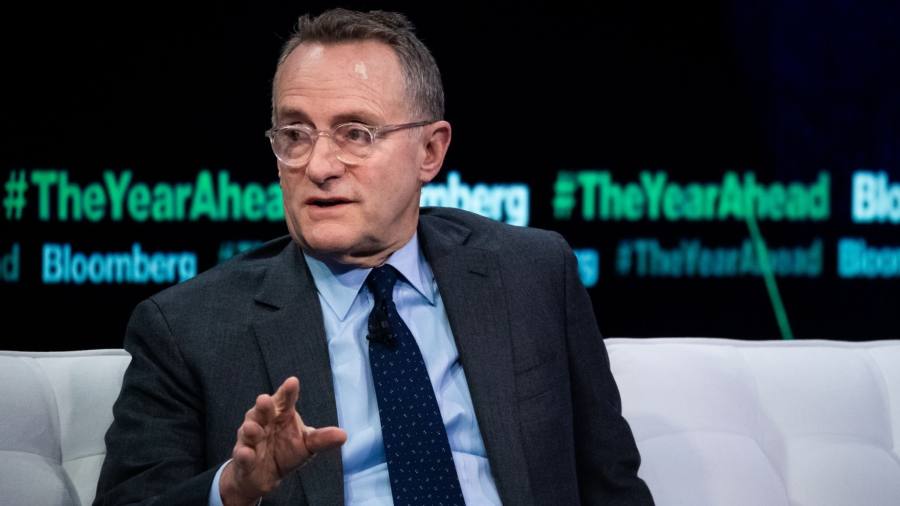Howard Marks, the co-founder of $172bn investment group Oaktree Capital Management, has warned that the boom in private credit will soon be tested as higher interest rates and slower economic growth heap pressure on corporate America.
The 77-year-old billionaire told the Financial Times that big asset managers had competed aggressively to lend to the largest private equity groups as money poured into their coffers in 2020 and 2021, raising questions over the due diligence the funds conducted when they agreed to provide multibillion-dollar loans.
“[Warren] Buffett says it’s only when the tide goes out that you discover who has been swimming naked,” he said. “The tide has not gone out yet on private lending, meaning the portfolios haven’t been tested.”
He added: “Did the managers make good credit decisions, ensuring an adequate margin of safety, or did they invest fast because they could accumulate more capital? We’ll see.”
Private credit has ballooned since the 2008 financial crisis prompted regulatory reform that pushed banks away from speculative lending and new lenders stepped in to fill the void, including many backed by private equity titans such as Blackstone, Apollo and KKR.
Data provider Preqin estimates the private credit market, which includes loans for corporate takeovers, has grown to about $1.5tn from roughly $440bn a decade ago. Fundraising has been brisk, eclipsing $150bn every year since 2019.
But part of that influx of capital was lent when markets were on a seemingly unstoppable march higher — before the US Federal Reserve began aggressively raising interest rates. Competition among private lenders pushed borrowing costs down at the time.
Investors have raised questions over a number of loan deals signed in that period, including some that were based on a company’s revenue growth as opposed to its profitability. Higher interest rates are also beginning to put pressure on companies, eating into profits, with some businesses asking their lenders to forgo cash interest payments.
Analysts with Moody’s, who are calling for an uptick in corporate defaults as economic growth cools, have separately warned that the lack of insight into the private credit market suggests “that the sector could harbour risks that are not currently visible”.
Marks set up Oaktree in 1995 with chief investment officer Bruce Karsh and three others. Known for his popular investment memos, he is an unequivocal contrarian, bargain hunter and follower of market psychology who tries to live by Buffett’s investing maxim: be fearful when others are greedy and greedy when others are fearful.
Right now he sees a fertile environment for lenders such as Oaktree to step in and provide financing where banks are further retrenching following the collapse of Signature Bank and two other US regional lenders. The Fed said this month that banks were tightening lending standards for businesses and warned of a potential credit crunch.
“Now you have some meaningful interest rates and some scarcity of capital as banks are restrained,” Marks said. “This is a good climate . . . you can get equity returns from debt now, and when you invest in debt you have a much higher level of certainty of return relative to equity ownership.”
Marks said that this contrasted with the investment landscape from 2009 to 2021, when interest rates were low and “everyone was eager to invest”.
“If everyone is eager to invest, you’re not going to get a bargain,” he said. “It’s simple supply and demand. For more than a decade it wasn’t a great time to be a lender. Now it’s a much better time.”
Oaktree has expanded beyond its roots in distressed debt and now invests across credit, private equity, real assets and publicly listed equities. The firm is in the midst of a fundraising push as it looks to raise $10bn to finance large private-equity backed takeovers.
Read the full article here




